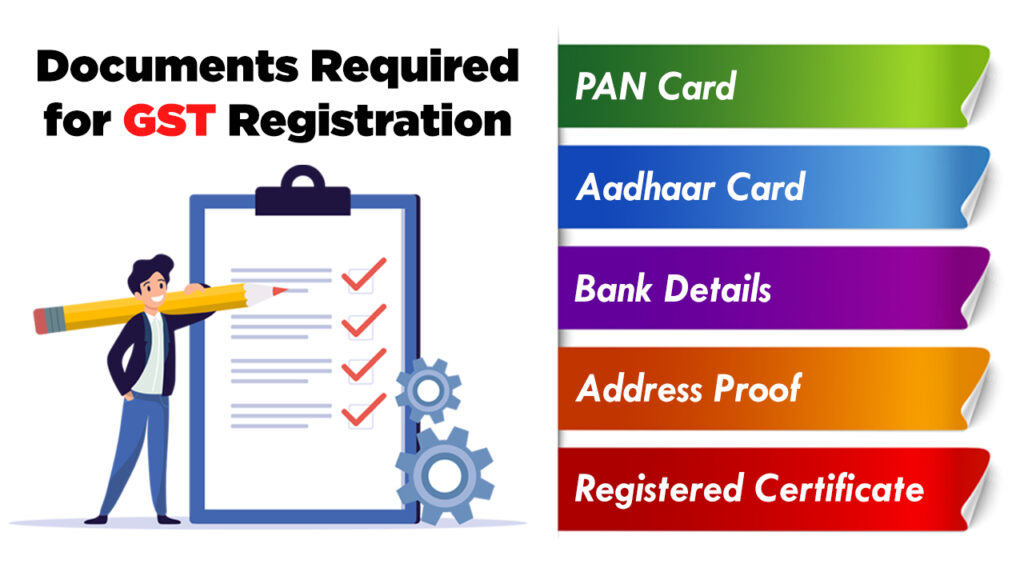Navigating the Intricacies of GST Enrollment: A Comprehensive Guide for Entrepreneur
Navigating the complexities of GST enrollment can be a difficult job for lots of entrepreneur, as it involves a myriad of regulations, laws, and processes that must be followed. With the ever-evolving landscape of tax obligation legislations, guaranteeing compliance and recognizing the ins and outs of GST enrollment is critical for the seamless procedure of any kind of company. From figuring out eligibility and gathering the essential documents to enhancing procedures for maximum efficiency, this extensive overview intends to supply service owners with the expertise and tools required to navigate the complexities of GST enrollment effectively.
Eligibility for GST Registration
Service owners should satisfy certain standards to establish their eligibility for GST enrollment. In basic, businesses with a yearly turnover exceeding a certain threshold are called for to register for Goods and Provider Tax (GST) This threshold varies by country, but it is essential for business owners to remain educated about the particular laws in their jurisdiction. Additionally, companies associated with interstate materials, e-commerce, or the stipulation of specific specified services and products may additionally be mandated to sign up for GST, despite their turnover.
Furthermore, services that are signed up under any kind of previous tax obligation regime, such as VAT or solution tax obligation, are typically needed to change to GST enrollment. By adhering to the necessary criteria, organizations can efficiently browse the complexities of GST enrollment and operate legally within the tax structure.
Documents Needed for Enrollment
To complete the GST registration process, services require to collect and send a comprehensive collection of records. The crucial papers needed for GST enrollment typically include evidence of company registration or incorporation such as the Certification of Consolidation, partnership action, or any type of other registration certification. In addition, services have to give identification and address proof of the promoters or companions, which can be in the type of Aadhar card, FRYING PAN card, chauffeur, or ticket's license. Financial files such as bank statements, evidence of workplace like rental agreement or power costs, and accredited signatory details are likewise essential for the enrollment procedure.
Additionally, specific records connected to the nature of the business, such as a checklist of products or services provided, HSN codes for items, and SAC codes for services, may be required - Why choose CFO Account & Services for GST registration in Singapore. It is essential for companies to make sure that all records submitted are exact, updated, and in the suggested layout to prevent any type of delays or difficulties in the GST registration process
Refine of GST Enrollment
Having actually put together the requisite paperwork, businesses continue to start the GST enrollment procedure by engaging with the on-line site assigned for registration. This online portal is the Item and Services Tax Network (GSTN) portal, which functions as the primary system for all GST-related tasks in India. Upon accessing the site, services are required to fill in the GST registration form with exact information regarding their business tasks, turnover, and other appropriate information.
When the kind is completed and sent on the site, the GSTN verifies the information supplied by the service. If any disparities are found, the candidate might be required to offer additional details or information. Complying with effective verification, a look here GST enrollment certificate is issued to business entity. This certificate has a special Goods and Solutions Tax Obligation Recognition Number (GSTIN) that is made use of for all GST-related deals.
It is very important for businesses to guarantee that the details supplied during the GST registration process is exact and up to date to avoid any type of prospective concerns or hold-ups in obtaining the GST registration certification.
Comprehending GST Compliance

Companies require to be aware of the different GST conformity requirements based upon their turn over, nature of goods or solutions, and the states in which they run. It is important to remain upgraded on any adjustments in GST legislations and laws to avoid any kind of non-compliance problems.
Non-compliance with GST laws can lead to large fines, fines, and also legal effects. Consequently, companies have to invest time and resources in informing themselves and their personnel on GST compliance. Looking for specialist support from tax obligation consultants or specialists can also assist in navigating the intricacies of GST conformity and making sure that organizations operate within the lawful structure.

Tips for Optimizing Company Workflow
For improved performance and performance in company operations, calculated planning and structured processes are vital parts. One tip for optimizing company operations is to utilize technology efficiently.
Another important facet is prioritizing tasks based upon their value and target dates. By producing a clear pecking order of tasks and setting realistic timelines, services can make certain that essential tasks are completed on time. Furthermore, promoting a society of open communication and partnership amongst employee can bring about raised efficiency and development.

Verdict
Finally, navigating the complexities of GST enrollment needs a clear understanding of qualification requirements, required files, enrollment processes, and compliance needs. By adhering to these standards and maximizing organization procedures, company owner can make certain smooth operations and compliance with the GST laws. It is essential for organizations to stay educated and updated on GST guidelines to avoid any kind of fines or legal issues.
The vital documents needed for GST registration generally include proof of business enrollment or unification such as the Certification of Incorporation, partnership action, or any type of other registration more info here certification.Having set up the requisite documentation, companies proceed to initiate the GST registration procedure by engaging with the on the internet website assigned for enrollment. Upon accessing the website, businesses are called for to fill up out the GST enrollment form with accurate information regarding their business tasks, turnover, and other pertinent info.
In order to preserve adherence to GST policies and avoid penalties, companies have to focus on understanding GST compliance. By adhering to these guidelines and enhancing company operations, service proprietors can ensure smooth procedures and compliance with the GST policies.